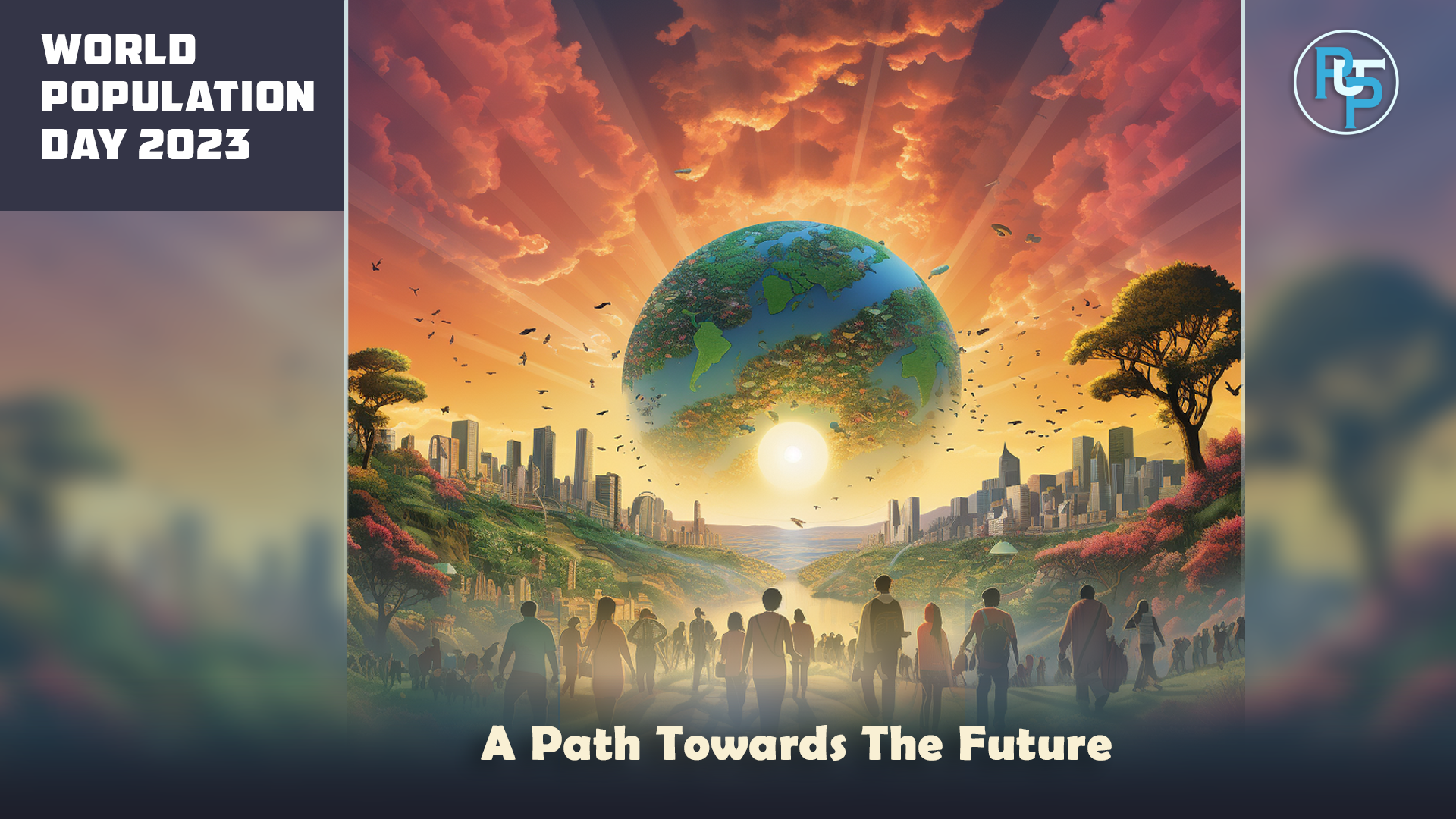World population day 2023 : Africa's Path to a Sustainable Future
The World Population Day, Observed annually on July 11, serves as a significant reminder of the global population challenges the world faces. Established by the United Nations Development Programme in 1989, this day aims to raise awareness about critical issues such as family planning, gender equality, poverty, maternal health, and human rights. As the world's second-largest and second-most populous continent, Africa plays a crucial role in addressing these concerns. In this article, we will explore why World Population Day is important for Africa and delve into the specific issues the continent must tackle to pave the way for a sustainable future.
The Significance of World Population Day for Africa
Africa is home to diverse cultures, rich natural resources, and a rapidly growing population. By 2050, the continent's population is projected to reach 2.5 billion, accounting for more than one-fourth of the global population. It is essential to recognize the potential of Africa's growing population and harness it as a demographic dividend. However, to unlock this potential, several key challenges must be addressed.
Family Planning:
Access to voluntary family planning services is crucial for empowering individuals and couples to make informed decisions about the number and spacing of their children. Africa needs to prioritize and improve the availability of modern contraceptives, reproductive health services, and comprehensive sexuality education. By investing in family planning, African nations can reduce unintended pregnancies, maternal mortality, and improve the overall well-being of women and families.
Over the past decade, Sub-Saharan Africa has witnessed remarkable progress in family planning programs, with increased access to and use of modern contraceptives. Despite concerns that the COVID-19 pandemic would hinder advancements, evidence shows that family planning initiatives in the region remained resilient. The population of women of reproductive age has grown significantly, necessitating adaptable and rights-based family planning programs. Key findings include the importance of data collection, the moderate impact of the pandemic on family planning use, the need for policy considerations regarding fertility trends, the urgency of addressing education disruptions and teenage pregnancies, the role of family planning programs in driving contraceptive use, the impact of population age structure on economic inequality, and the importance of equitable, data-driven programming. By prioritizing these factors, Africa can foster inclusive development and ensure reproductive health and rights for all individuals and couples.
Gender Equality:
Achieving gender equality is not only a fundamental human right but also a key factor in sustainable development. Africa must work towards eliminating gender-based discrimination and ensuring equal access to education, healthcare, and economic opportunities for women and girls. Empowering women through education and providing them with reproductive healthcare choices can significantly contribute to addressing population challenges, reducing poverty, and fostering economic growth.
Poverty Alleviation:
Around 460 million people on the continent were living below the extreme poverty line of 1.90 U.S. dollars a day in 2022. Since the continent had approximately 1.4 billion inhabitants, roughly a third of Africa’s population was in extreme poverty that year. Madagascar, the Democratic Republic of the Congo, and South Sudan had Africa’s highest extreme poverty rates. Over 75 percent of their population lived with less than 1.90 U.S. dollars per day in 2019. Although the levels of poverty on the continent are forecast to decrease in the coming years, Africa would remain the poorest region compared to the rest of the world.
In 2022, the extreme poverty rate in Africa stood at around 50 percent among the rural population, compared to 10 percent in urban areas. Together with poverty, malnutrition is also widespread in Africa. Limited access to food leads to low health conditions, increasing the poverty risk. At the same time, poverty can determine inadequate nutrition. Almost 40 percent of the global undernourished population lived in Africa in 2020.
Poverty remains a pressing issue across Africa, with millions living in extreme poverty. Addressing population-related challenges requires a comprehensive approach that tackles poverty and inequality simultaneously. Governments, civil society organizations, and the international community must collaborate to implement sustainable development strategies that create jobs, enhance agricultural productivity, promote entrepreneurship, and ensure access to basic services such as healthcare and education.
Maternal Health:
Improving maternal health is vital for the well-being of women and the development of communities. Africa has made progress in reducing maternal mortality rates; however, challenges persist, particularly in rural and marginalized areas. Ensuring access to quality maternal healthcare, skilled birth attendants, and emergency obstetric care is essential to reduce maternal deaths and promote the health of mothers and their children.
Sub-Saharan Africa — 21 low-income, 19 lower-middle-income, 6 upper-middle-income countries, and one high-income country (Seychelles) — experiences the greatest number of maternal deaths, 545 deaths, per 100,000 live births. “This is over 100 times higher than in Australia and New Zealand,” said Cresswell
Even if a woman can afford maternal care, finding care at all, let alone competent care, is another challenge in a region with a severe lack of adequately trained medical staff and health care workers.
Educational Systems
By 2050, the number of Africans below 18 is due to reach about 1 billion. Realizing the potential of this demographic dividend requires a robust, diverse and well-funded educational ecosystem. There is, therefore, a pressing need for investment and coherent policy in the sector. Africa has a wealth of human capital that can buoy the continent’s future prospects but governments are not always able to meet the rapidly growing demand for developing this on their own. Addressing this challenge requires a smart, strategic and concerted effort from the public and private sectors.
UNESCO reports that sub-Saharan Africa’s spending on education has risen by 6% each year over the past decade, a result of concerted efforts from national governments. Currently, there is a funding gap estimated at US$16bn to $18bn. The private sector can play a significant role in filling this gap. Relying on consistent and quality teaching, private institutions can create greater access through the expansion of pan-African networks in traditional settings and via alternative methods, such as distance education or online learning.
Human Rights:
Respecting and protecting human rights is crucial for fostering inclusive and equitable societies. Africa must strengthen efforts to eliminate all forms of discrimination, uphold the rights of vulnerable populations, and address issues such as child marriage, female genital mutilation, and gender-based violence. Promoting human rights not only safeguards individual well-being but also fosters social cohesion, stability, and sustainable development.
As we observe World Population Day, it is imperative to recognize Africa's unique role and the challenges it faces in shaping a sustainable future. By prioritizing family planning, gender equality, poverty alleviation, maternal health, and human rights, African nations can create an environment conducive to equitable development and improved well-being for all. Collaboration among governments, civil society organizations, and the international community is crucial to ensure the successful implementation of comprehensive strategies addressing population issues. By doing so, Africa can pave the way for a brighter future, harnessing its demographic dividend to drive progress, prosperity, and social harmony.

